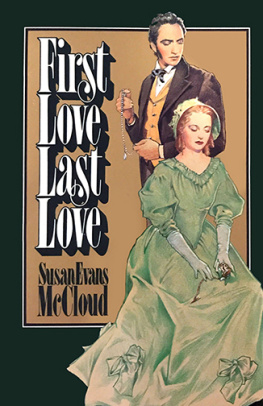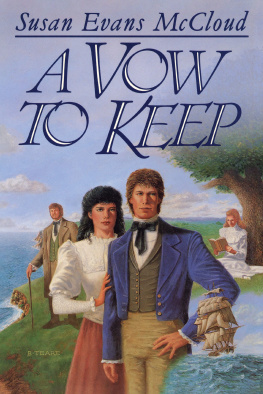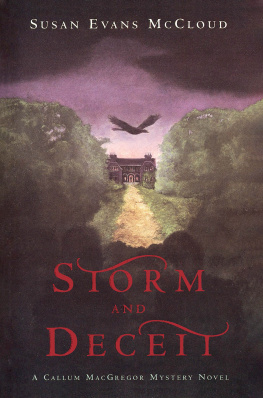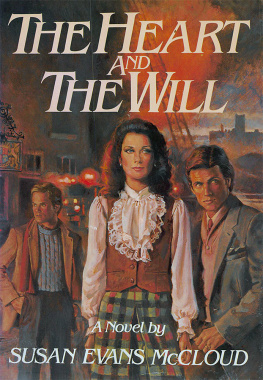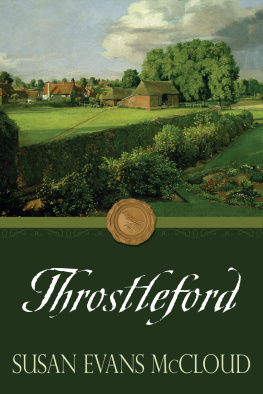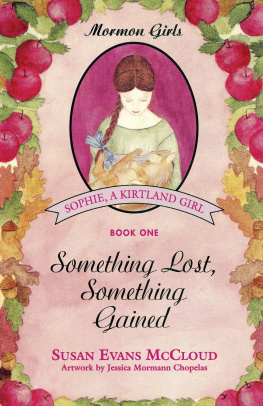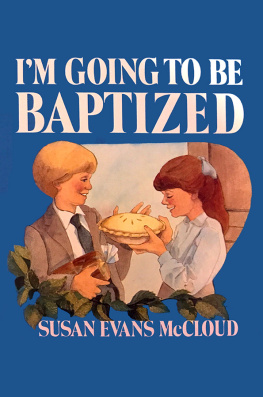Copyright1987 by Bookcraft, Inc.
All rights reserved. This book or any part thereof may not be reproduced in any form whatsoever, whether by graphic, visual, electronic, filming, microfilming, tape recording, or any other means, without the prior written permission of Bookcraft, Inc. except in the case of brief passages embodied in critical reviews and articles.
Library of Congress Catalog Card Number: 86-64021 ISBN 0-88494-855-2
eISBN 978-1-62973-956-4
First Paperback Printing, 1992
Printed in the United States of America
This one belongs to my sister, Dianne, and the years of dreaming we shared together
All characters in this book are fictitious, and any resemblance to actual persons, living or dead, is purely coincidental.
Chapter One
It was a raw night for April. I remember it clearly. The house seemed to rock with the force of the wind, and make shudders of protest. We sat huddled around the fire listening to stories as a gale blew in off the sea, wet and noisy. I like the sounds of the sea, even when it's angry. But my grandfather's story disturbed me nevertheless.
His voice was deep and resonant, the voice of a singer, and its rise and fall had a cadence that might have lulled me if the tragedy of his words had not been so stark.
"It was a winter with teeth to its bite like you've never seen, Anna." He nodded in my direction and I nodded back. My brother Petur stirred in the shadows beside me. "We had used up all the dried fish," my grandfather continued. "The sour butter and hafkal were gone, too." He shook his head, and the old lines of sorrow cut deep in his forehead. "A day came without storm. The skies seemed milder. Other years we might have waited, but not this year. My brother, Petur, was the best sailor among us. You are like him," he said to the shadows beside me. "Resilient and hopeful and sure of yourself." I could almost feel Petur smile. Such praises pleased him. "He took his sons, Lofter and Thordur, with him, and my own son, Samuel." My grandfather sighed. I knew what was coming next, and I didn't like it. But the story must wind itself out to the end, with no one thinking to stop or amend its telling.
"I walked to the edge of the sea with them. The cloud shadows spotted the water, green pools on the surface of a sea that was gray and unsettled. We pushed the boat in at the edge of the cove. The waves, where the rocks stopped them, pounded nine feet, ten feet high in their anger, and the spray from the waves was cold on my skin."
My grandfather made a clucking noise back in his throat and shook his head. His long white hair seemed sprinkled with shimmering flecks that danced and trembled.
"I would have gone in place of the boys," he continued. His voice had lowered, and a hollow tone had crept in. "But your father there seemed anxious to enter the world, so I stayed with his mother. They meant to cast their lines near the shallowsI don't know what happened. One moment young Samuel was waving his hand, his face glowing with pleasure ... the next moment the boat seemed to rise on the back of a monster"
My baby sister cried out in her sleep and I felt my skin prickle.
"I watched helplessly while the boat lunged out to the sea, a toy for the waves to play with. The next wave" his words were like stones "they went under, effortlessly, with no noise, no protest. Though I watched till my eyes stung and blurred, I saw no trace of them. They never came up again."
I gazed into the fire where the peat curled into small flames. I could end the story without listening to his words.
"I went home to my Hela," he continued, "and told her our son was lost. But before the night fell, the gods blessed our home with a new son. And so the pain did not swallow your grand mother's heart, my Anna. And thus the gods give, and the gods take away. And man learns to live with the gods and their pleasure."
His voice ended. The whale-oil lamp sputtered. I thought the shadows looked deep and cold. I leaned against Petur, and closed my eyes because they were stinging a little. I didn't hear the sound at the door, but my father heard it. He rose noiselessly from his place and crossed the room with the stealthy skill of our cat that now slept in the corner. Our eyes, all our eyes, followed after my father. And everyone's breath seemed to hover and hold.
He called through the latch, "Who is there?" and the muffled answer was lost in the cold rush of wind that blew into the kitchen. I saw the two young men bend over to pass through the door, and my father hasten to shut it behind them. One of them grinned and pushed his hat back off his forehead. He was the one I liked best. I sat up to listen.
"No spies out in a storm like this one!" His friendly grin widened.
"None out but the foolhardy, yesand those up to mischief." My grandfather said the words slowly. There was no music in them.
"I plead guilty to the first designation, sir. That I must do." Elder Thorderson laughed and shrugged his big shoulders. "We had to come tonight, Einar." He turned now to my father and lowered his voice a little. "The meeting's tomorrow, just after chores in the morning. The usual place. We should receive all the final details we need for leaving. Very important."
"I'll be there," my father said.
"And Margret. I think Margret should come as well. There will be things for the women's ears."
"I'll go in her place." I had said the words without thinking to say them.
Elder Thorderson turned his warm eyes upon me and my father looked me thoughtfully up and down.
"Perhaps, daughter, if the baby is still unwell, and your mother wishes."
He turned his back then and drew the two young men closer. What he told them was not for our ears, but I could feel it, as I had felt the cold spray from the sea that had drenched our grandfather, as I had felt the wild ache in his heart as he turned his steps home. I knew my father would be telling the missionaries of our troubles with the Lutheran minister, how last week he had spoken from the very pulpit to denounce the Mormons, with bitter words that were harsh and untrue. And how, after the service was out, not one of our neighbors spoke a word of greeting to us, and on the road the little pony that pulled our cart caught a stone in his hoof, and the people passed in a wide path around us, and not one of them offered us help.
It was hard for my father, perhaps harder than for the rest of us, even my mother. We waited a few moments longer, trying not to listen, then my mother rose from her chair and went to the cupboard and pulled out two wooden bowls and a small cask of skyr. She ladled the sweet curds into the bowls with a generous hand and presented them, along with spoons, to the two standing men, who took them with grateful smiles and then ate as they listened.
My mother turned, and at a motion of her head the younger children, Gesli, Sina, and Samuel, began to move, finding their places on the narrow shelf beds they slept on. I tried to avoid her eyes, but she wouldn't have it.
"Anna," she instructed, "take the small lamp with you and tuck the children into bed."
"Shall I hear their prayers?"
She hesitated a moment, and I wondered if she prayed to the Heavenly Father the Elders taught of, and if she was comfortable with such praying.
"Yes, dear, if you would."
She dismissed me with the words, and my desires had no place in the hard scheme of schedule. I noticed that Petur had moved out from his corner and close to the men. I might have complained of such unfair treatmentPetur was only one year my seniorbut he was listening, the young Elder with the dancing blue eyes. He mustn't see me as a whiner and a baby.



